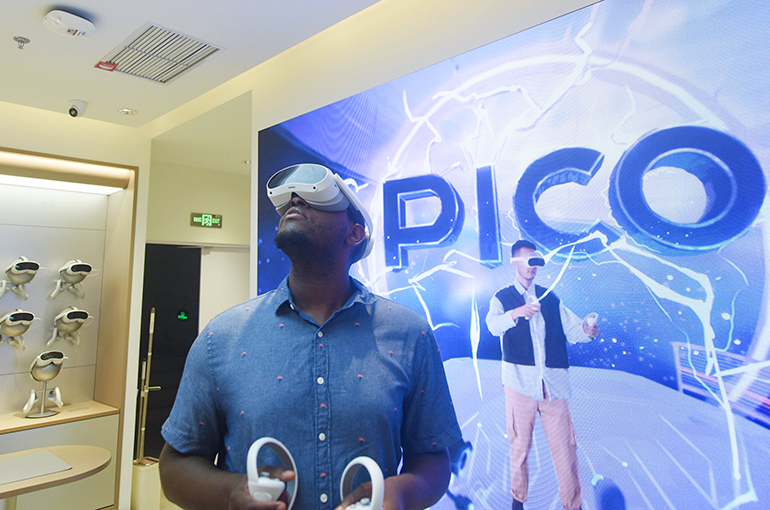 ByteDance’s VR Arm Pico Denies Big Staff, Executive Exodus, Report Says
ByteDance’s VR Arm Pico Denies Big Staff, Executive Exodus, Report Says(Yicai) Oct. 24 -- Pico has rebutted a media report that said nearly half of its employees and many senior executives have left the virtual reality firm belonging to TikTok owner ByteDance, according to an article by Sina Tech.
There has been only a minor staff layoff, Pico told Sina Tech today. The Beijing-based company is operating normally and will continue investing in products and technology, it added.
Online news outlet The Paper reported earlier that almost half of Pico's employees had resigned, and multiple senior executives had stepped down or been transferred to other positions.
Pico had more than 2,000 employees at peak headcount, according to The Paper, which cited sources at the VR firm, which ByteDance acquired Pico in September 2021. Around two-thirds of marketing department staff have left, and its technology department has halved in size, they added.
Ren Lifeng, who moved from Douyin, China's version of TikTok, to take over Pico's content and culture department, is no longer responsible for the business despite remaining in post, while Liu Yu, head of the video and live-streaming business, has resigned, The Paper said. Since ByteDance bought Pico, many senior executives who joined from Douyin have left or changed roles, it added.
Pico’s headcount rose to 2,000 from 200 after ByteDance acquired it, with around 30 percent working overseas. But it has gone through several redundancy rounds since the beginning of this year, letting go about 20 percent to 30 percent of staff in February.
On Oct. 21, some reports claimed that Pico will gradually be shut down and that ByteDance has abandoned the metaverse business. But ByteDance dismissed the reports yesterday and said Pico is operating normally and will invest in the extended reality business over the long term.
Executives at Pico also noted that the company will maintain normal product operation and will continue to raise investment in products and technologies.
According to a technician at Pico, the costs of VR hardware are rather high, and the market is still in the incubation period, with unclear roadmaps for profitability. “VR development requires a team of over 100 members focused on hardware, software, designs, manufacturing, and content creation,” the person said.
“Algorithms' optimization also needs constant investment,” the technician said. “Companies will face dire financial straits in the future after several years of continuous investment if they are not competitive enough in terms of capital and the quality of products, meaning that long-term financing and sufficient patience is needed.”
Editor: Martin Kadiev